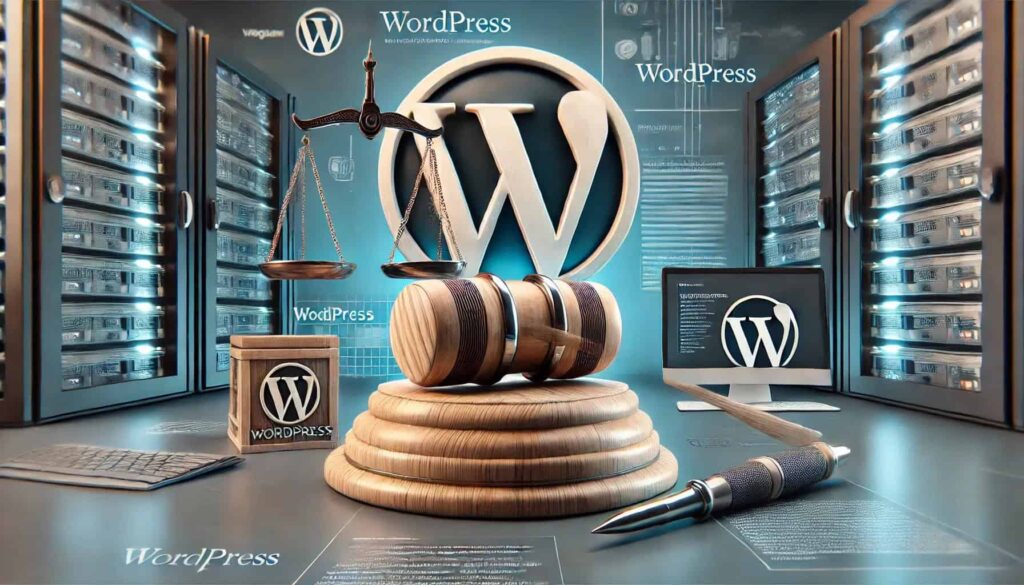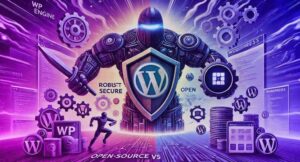Inside the WordPress Legal Battle: WP Engine vs. Automattic Heats Up

The WordPress community is abuzz as two giants, WP Engine and Automattic, clash over trademark rights, leading to a legal showdown and stirring debates on open-source ethics.
The WordPress ecosystem, typically seen as a cooperative community, is currently facing a legal dispute that has drawn significant attention. This feud involves WP Engine, a managed WordPress hosting company, and Automattic, the company behind WordPress.com, WooCommerce, and more, led by WordPress co-founder Matt Mullenweg. The crux of the issue? A trademark dispute and accusations over contributions to the open-source project.
This dispute began when Automattic asked WP Engine to enter a licensing agreement for the “WordPress” trademark, which Automattic holds exclusive commercial rights to. They proposed that WP Engine either make financial contributions or increase their involvement in the open-source WordPress project. However, talks broke down, leading to a very public fallout.
Matt Mullenweg brought the issue to light at the annual WordCamp US conference, accusing WP Engine of not contributing enough to the WordPress community despite generating over $400 million in revenue. This marked the beginning of a series of legal moves, with both sides issuing cease-and-desist letters, escalating the matter to the point where WP Engine was temporarily banned from accessing WordPress.org’s servers.
Following the legal exchanges, WP Engine took the matter a step further by filing a lawsuit against Automattic, highlighting issues that go beyond the trademark. One of the primary concerns for WP Engine is the move by WordPress.org to block their team’s ability to update plugins, which disrupted services for users on their hosting platform. The most notable case involved the popular plugin Advanced Custom Fields (ACF), which was forked by WordPress.org to maintain security updates after WP Engine lost access.
For many in the WordPress community, this action raised concerns about the future of open-source collaboration. Critics argue that these legal battles could lead to a fractured ecosystem, where users might be forced to choose sides, affecting the overall stability of WordPress as a leading content management system.
Not. Despite the high-profile nature of the dispute, WordPress, which powers 43% of the world’s websites, remains strong. This legal scuffle is unlikely to affect the core functionality or the vast majority of users. Most of the community remains focused on development, support, and growth, ensuring that the platform continues to thrive.
However, it does raise questions about the responsibilities of companies that profit from open-source projects. Should they be obligated to give back, or is the freedom to use the software as they see fit part of the open-source ethos?

WP Engine was given a brief reprieve when WordPress.org temporarily lifted the block, allowing them time to set up their own update servers. But with the October 1st deadline having passed, the company must now navigate maintaining services independently. Meanwhile, Automattic has stated that WP Engine’s access to WordPress.org resources will remain limited unless the licensing issue is resolved.
The lawsuit filed by WP Engine could take months, if not years, to settle. In the meantime, both companies are doubling down on their positions. WP Engine claims that Automattic’s demands are excessive, while Mullenweg continues to advocate for increased contributions to the open-source project, framing the issue as a matter of community values rather than just a legal battle.
While the future of this specific dispute remains uncertain, it has opened a broader conversation about the role of profit-driven companies in the open-source world. WordPress users, agencies, and developers focus on creating and maintaining a robust, user-friendly platform. Yet, this legal battle serves as a reminder of the complexities that arise when community ideals meet corporate interests.
